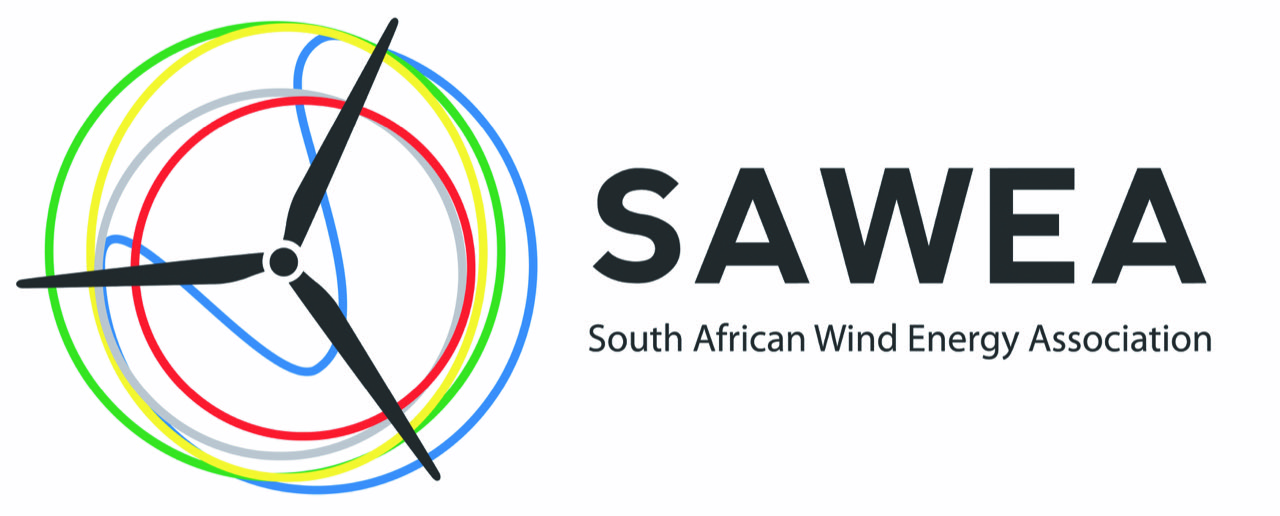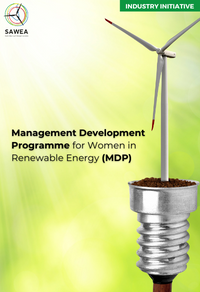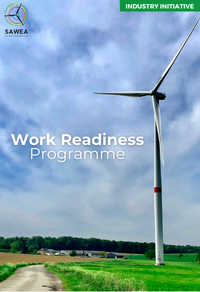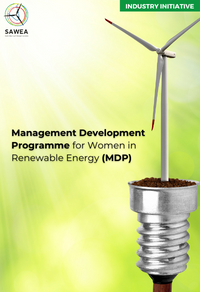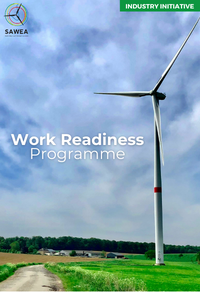The critical role of legal reforms to unlock SA’s wind energy future
As South Africa continues its journey toward a sustainable energy future, wind energy has emerged as a crucial element of the country’s renewable energy mix. With its rich wind resources and increasing demand for clean energy, the sector is well-positioned to contribute significantly to the nation’s energy goals. Despite this promising outlook, several significant challenges could impede its growth.
Lena Chirwa, Board Member at the South African Wind Energy Association (SAWEA) and Head of Legal & Corporate Affairs - Sub-Saharan Africa at Enel Green Power, explains that as the wind energy market in South Africa matures, the complexities of project development, grid connections and regulatory compliance have increased significantly.
“Given the many challenges, the role of commercial law has become crucial in advancing the sector and highlighting the urgent need for legal reforms. This has transformed commercial law into an indispensable tool for navigating the complex legal and regulatory landscape of renewable energy projects.”
One of the primary hurdles is the regulatory environment, where existing regulations are often complex and outdated, leading to administrative bottlenecks that impede project development. Simplifying and modernising these regulations is essential for fostering a more supportive environment that promotes innovation and attracts investment.
Financial constraints also pose a significant challenge, with the perception of the high financial risks associated with wind energy projects making it difficult to secure funding.
“To attract both local and international investors, it is essential to have legal reforms that clarify risk management strategies and provide financial incentives. Such reforms can help mitigate perceived risks and accelerate the deployment of wind energy projects,” adds Chirwa.
Furthermore, land acquisition for wind farm projects presents another critical obstacle. The process can be lengthy and contentious, involving multiple approvals and potential disputes that cause delays. Here, effective legal frameworks are needed to streamline land acquisition processes, reduce delays and resolve conflicts efficiently, facilitating quicker project execution.
Additionally, integrating wind energy into South Africa’s national grid involves technical and regulatory challenges. Developing robust legal frameworks to support seamless grid connections and infrastructure investments is essential for ensuring that wind power can be harnessed and distributed effectively across the country.
The role of commercial law is becoming increasingly critical in overcoming the challenges faced by the renewable energy sector. As the sector experiences rapid growth, commercial law has had to adapt, demanding a more in-depth engagement with technical aspects and a stronger grasp of regulatory policies. This transformation underscores the importance of legal expertise in navigating the complexities of renewable energy projects.
Commercial lawyers play a critical role in navigating these complexities, with Chirwa adding that she has adapted to engage more deeply with the technical aspects of a project, and garnered a deeper understanding of the regulatory policies related to the industry.
“As commercial lawyers, our involvement in contractual negotiations is essential for addressing risk allocation issues and streamlining transaction processes,” she says. “By managing these aspects effectively, we contribute significantly to the successful implementation of renewable energy projects.”
Looking at global examples, Germany in particular, underscores the argument for legal reforms in South Africa's wind energy sector. Here, regulatory changes, such as streamlined permitting processes and clear legal frameworks, have played a pivotal role in positioning the country as a global leader in wind energy1.
Drawing parallels to these successes can highlight the potential impact of similar reforms in South Africa, making a compelling case for how targeted legal changes could accelerate the country's renewable energy adoption.
To fully realise the transformative potential of wind energy in South Africa, it is not enough to merely identify the challenges. Action is required, and legal reforms that streamline regulations, mitigate financial risks and simplify land acquisition processes will unlock new opportunities for innovation and growth.
The future of South Africa's renewable energy sector depends on the willingness of stakeholders - government, investors and legal professionals alike - to adapt and collaborate. By embracing these changes, South Africa can not only meet its energy goals but position itself as a leader in the global shift toward a sustainable future.
